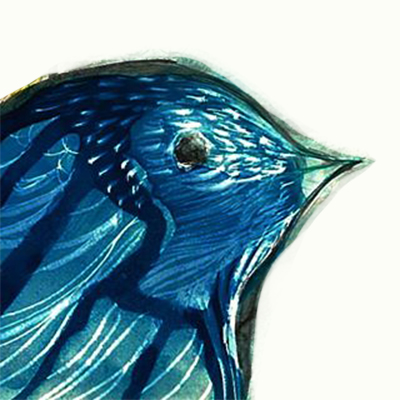My dear friend Arturo told me about this exchange between Orson Welles and a journalist in Paris:
- Did you ever cast a friend instead of the right person for the part in one of your films?
- Frequently.
- Have you regretted it?
- Frequently.
- And would you do it again?
- Yes!
Orson Welles explains that in his case, art is not the most important loyalty in the scale of our multiple loyalties and for him, friendship has more weight, although he respects those who put art above all other considerations. “They’re probably the most valuable artists. So I'm not defining what an artist ought to be. I’m just saying what kind of artist I am.”
The thing is, without sacrificing friendship as a value more important than art, Orson Welles managed to make masterful and canonical films.Perhaps his movies would have been even better if he always focused on casting the perfect person for each part, instead of offering the roles to his friends. Or perhaps an ingredient of the magic was that the films were created in the spirit of those who defend, above all else, the ties that bind them as humans and comrades. Maybe genius is a spark that ignites best in spaces where everyone is fighting for their friends' dreams, rather than just looking at their individual goals.
I’ve thought a lot about that interview because it's increasingly clear to me that art is nourished by communities, and the most unpredictable and vigorous art isn’t the result of isolated geniuses, but the combined energy of unpredictable and vigorous groups. John Lurie (jazz musician, painter, actor in a couple of independent film classics and the mind behind two weird and wonderful television series, “Fishing with John” and “Painting with John”) wrote about his young, poor years in the rough and bohemian neighborhoods of New York (when neighborhoods like that still existed in New York). For example, he was friends with Basquiat, and before he was famous, Basquiat slept on the floor of his living room. My favorite story is a collective attempt to film a sci-fi movie in his apartment, with no money, and how they concocted a spaceship with aluminum foil, and how they recorded the sound effects in the kitchen. That wasn’t a canonical or masterful film. It was an exercise of imagination among comrades. Nobody became famous. No one won critical acclaim. Nobody earned a penny. But the beauty of friends practicing their dreams together, even the most improbable, even the most ridiculous, was a component of the electricity that moved through the alleys and rundown buildings and underground bars of the city, and that’s the electricity which gave us the art and artists we remember from the early 80's New York city.
That kind of electricity is born in free territories, outside the institutions that control the entry and exit for those who make “good art” into the spaces of success and recognition. If art could breathe only in those spaces, it would have died long ago. Art is not only what's made by select groups, chosen by the intellectuals in fashion, according to the accepted norms of good and bad taste, for the consumption of the educated classes. Art is something irrepressible humans do to stay alive, to communicate the mystery of themselves and the mystery of the world to each other. And to exist with independence and freedom, art needs communities.
I like punk as an example of how groups become magic when they live and create in the margins of society (the most unpredictable and vigorous spaces of all societies), and jump over the walls imposed by record monopolies and agents and critics and marketers, and make their own magazines, and create their own record labels in the backyards and basements of their homes, and print their vinyl records on stolen machines, and don't wait to know how to play the guitar or sing with virtuosity to make music that's not meant to be listened peacefully in the living room and is not meant to sell tickets for elegant theaters but meant to crash your body and jump in the air and clench your fists, and all of it existed with its specific electricity not as the result of the individual genius of a musician or a band, but because entire groups of penniless kids created and sustained a raging and fierce ecosystem.
John Berger, reflecting on the power of songs, wrote: “The rich listen to songs: the poor cling to them to make them their own.” There’s art that’s consumed, and there’s art that’s embraced urgently, to survive. The more urgent art flourishes in communities that need it to save themselves.
My Instagram profile bio says “artist,” I wrote it shakily at first. The word isn’t there as a reflection of my resume, or my professional merits, or my technical skills. It’s there to describe me because art saves my life. It doesn't pay my rent or my food, but it’s an indispensable tool to navigate the world, without which I would’ve been shipwrecked long ago. And what I like most, especially now, is that it’s a bridge to dream my dreams but also (when I’m very lucky) to walk into the beautiful dreams of friends, who, same as Orson Welles, include me in their visions and their songs, even if they could cast someone better for the role.

